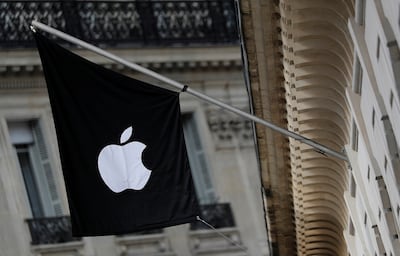As consumers increasingly turn to voice assistants like Apple’s Siri, Amazon’s Alexa and Google Assistant for tasks including setting reminders to controlling smart homes, the convenience comes with a hidden cost: threats to data security and privacy.
Apple’s recent proposal of a $95 million cash settlement over Siri’s alleged privacy breaches demonstrates this friction between technological convenience and consumer trust.
These artificial intelligence-powered tools have revolutionised human-device interaction, but their rapid adoption has also highlighted vulnerabilities in safeguarding personal information, industry analysts have said.
According to Dev Nag, founder and chief executive of California-based technology firm QueryPal, Siri’s settlement reflects a broader shift in how privacy breaches are being monetised in the regulatory landscape.
“While the amount may seem substantial, it actually signals that privacy violations remain relatively inexpensive for tech giants,” Mr Nag told The National.
Globally, the drivers behind voice technology adoption are speed and convenience, research and news company PYMNTS said in its research report released in April.
According to the report, 63 per cent of consumers said they would use voice-assisted technology if it were as capable as a person; 58 per cent cited ease of use and 54 per cent mentioned its speed compared to typing or using a touchscreen.

Apple’s $95m settlement: what happened?
Apple has agreed to pay $95 million to resolve claims that Siri had improperly recorded and retained user conversations, even when not triggered. A preliminary settlement was filed on Tuesday in federal court in Oakland, California, but it still requires approval by a district judge.
The lawsuit alleged that accidental activations allowed sensitive information to be recorded and shared with third-party contractors for analysis, breaking privacy laws and user trust.
A couple of complainants in the lawsuit reported receiving advertisements for Air Jordan trainers and Olive Garden restaurants after mentioning them in conversations. Another claimed to have been shown advertisements for a specific surgical treatment following what they believed was a private discussion with their doctor.
Mr Nag sees this case as emblematic of the compromises tech companies make while navigating the rapid advancement of AI technology.
chief executive of QueryPal
“The timing of this settlement during a period of aggressive AI development highlights how companies are prioritising their algorithmic capabilities over reputational risks,” he said.
While Apple denied wrongdoing, the settlement highlights the growing scrutiny of tech companies because of data privacy practices.
The privacy lawsuit, initially filed in February 2021, was dismissed by a judge on grounds of insufficient evidence. However, it was refiled and allowed to proceed in September 2021 after the judge determined that the plaintiffs had presented sufficient claims in their revised submission.
What Apple’s settlement means for consumers
If approved, the proposed settlement would apply to the US-based users who owned or purchased Siri-enabled devices – including iPhones, iPads, Apple Watches, MacBooks, iMacs, HomePods or Apple TVs – between September 17, 2014, and December 31, 2024.
It could compensate users up to $20 per device, covering as many as five Siri-enabled devices per person.
Eligible users must also declare under oath that Siri was accidentally activated during a conversation they considered confidential or private.
The final payout per claimant will depend on the total number of valid claims, meaning individual compensation could fall below the $20 cap.
Mr Nag said that the settlement could act as a “privacy tax” rather than a true deterrent, allowing companies to treat such payouts as part of their cost-benefit analysis when developing AI features.
“Apple essentially paid roughly $20 per affected device, a fraction of each device's profit margin … we are seeing a pattern where companies like Apple can effectively purchase their way out of privacy controversies while maintaining their market position,” he added.
Siri and its share of controversies
In August 2019, Apple issued a formal apology for the breach of Siri-related privacy practices.
At that time, the company admitted to secretly employing humans to review recordings of customer interactions with Siri to improve the service. These interactions also included private conversations, recorded due to unintentional Siri trigger, and human graders were reportedly listening to up to 1,000 recordings a day.
“We realise we haven’t been fully living up to our high ideals, and for that we apologise,” Apple said.
It also announced an immediate suspension of human grading or review of Siri requests, opting instead to use computer-generated transcripts. However, users now have the option to opt in and allow Siri to improve by learning from audio samples of their requests.
Apple has been the subject of numerous lawsuits and has been involved in antitrust investigations in Japan, South Korea and Europe.
In September, the EU told Apple to allow access to its tightly controlled iPhone and iPad operating systems to rival companies and third-party developers or face antitrust fines.
In March, the company said it would appeal against a $2 billion fine from the European Commission, stemming from an accusation that Apple unfairly shut out music-streaming rivals on its platforms, most notably Spotify.
It also faces an investigation in the UK over complaints about how the company treats app developers.
Big Tech’s troubled record on privacy
The Apple case is not an isolated incident. In the past, major tech companies have faced substantial fines for privacy breaches.
A separate lawsuit involving Google Assistant is currently pending in a federal court in San Jose, California. The same law firms representing plaintiffs in the Apple lawsuit are also handling the Google case.
In July 2021, Google was fined €500 million ($515 million) by French authorities after the company failed to comply with orders on how to conduct “fair” talks with the country's news publishers and agencies.
The US Federal Trade Commission imposed a $5 billion penalty on Meta-owned Facebook in 2019 due to privacy breaches related to the Cambridge Analytica scandal. This settlement included various requirements to enhance accountability and transparency within Facebook's operations.
Also in 2019, Facebook was called out for collecting confidential details of 187,000 users, some as young as 13, through its now non-operational app Research that paid users for wide-ranging access to their data.
In July 2020, Facebook admitted to accidentally sharing users’ confidential data with hundreds of third-party app developers even after their access period to user data had expired.
Mr Nag predicted that as regulatory pressure intensifies, other tech giants like Microsoft, Google and Amazon “proactively restructure their AI data collection practices to create legal shields while maintaining access to valuable training data”.
“[They] are already shifting towards hybrid approaches that technically comply with privacy regulations while preserving their ability to harvest user interactions … [they are] designing AI systems that can learn from encrypted or anonymised data streams … allowing companies to claim privacy by design while still building powerful AI models. ”



